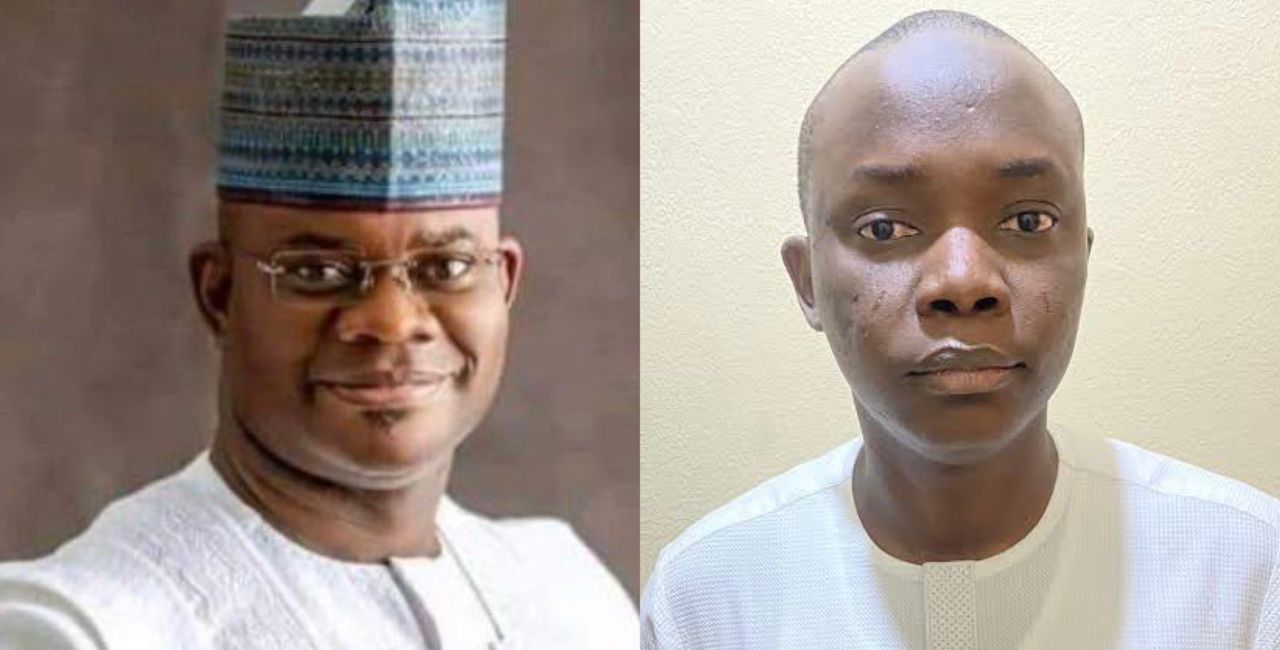Former Lagos State Commissioner of Police Fatai Owoseni has lambasted the Economic and Financial Crimes Commission (EFCC) for its handling of the high-profile case against former Kogi State Governor Yahaya Bello. Speaking from his office in Lagos on Monday, September 23, 2024, Owoseni didn’t mince words as he described the unfolding drama as a “manifestation of the failure of institutions.”
The streets of Abuja have been abuzz with tension and speculation as the EFCC’s pursuit of Yahaya Bello has taken on an almost theatrical quality. Bello, who had previously been declared wanted over allegations of money laundering and corruption to the tune of N80.2 billion, finally honored the EFCC’s invitation last week. However, what should have been a straightforward process quickly devolved into a surreal series of events.
I was there when Bello arrived at the EFCC headquarters,” recounted Aisha Mohammed, a local journalist who witnessed the scene. He came with quite an entourage, including the current Kogi Governor Usman Ododo. But then, in a twist no one saw coming, they were asked to leave.”
The drama didn’t end there. Shortly after Bello’s departure, EFCC operatives descended upon the Kogi State Government Lodge in Abuja, apparently in an attempt to arrest the former governor. This move sent shockwaves through political circles and left many observers scratching their heads.
At the heart of this unfolding saga are serious allegations against Bello. The EFCC has filed 19 criminal counts before a Federal High Court in Abuja, accusing the former governor of criminal breach of trust and money laundering.
According to the charge papers, Bello is accused of converting a staggering N80,246,470,089.88 belonging to the Kogi State government to his personal use in February 2016. This alleged act violates Section 18(a) and is punishable under Section 15(3) of the Money Laundering (Prohibition) Act, 2011 as amended.
Furthermore, Bello faces accusations of indirect money laundering through associates. The EFCC alleges that he used Ali Bello, Dauda Suleiman, and Abdulsalam Hudu to launder N950 million, which was reportedly used to acquire a property at No. 35 Danube Street, Maitama District, Abuja.
It’s against this backdrop that Fatai Owoseni’s criticism carries particular weight. The former police commissioner didn’t hold back in his assessment of the EFCC’s approach.
I think they aren’t just ready to arrest the guy,” Owoseni stated bluntly. The EFCC is too dramatic about the whole issue. And, of course, it’s a manifestation of the failure of institutions, the security institutions in particular.”
Owoseni’s critique extended beyond the EFCC’s tactics to broader issues within Nigeria’s law enforcement apparatus. “The ethics of the job and loyalty to the institutions have been thrown to the wind,” he lamented. “In addition, there is little or no inter-agency collaboration, despite them mouthing it all the time.”
The former police chief’s words serve as a rallying cry for reform within Nigeria’s anti-corruption efforts. Owoseni urged the EFCC to “stop insulting the sensibilities of Nigerians,” questioning the efficacy of their current approach.
“With all the drama, even when arrested, other than plea bargaining and VIP treatment in the detention facilities, what next?” Owoseni asked rhetorically. His concerns extend beyond the immediate case, touching on systemic issues within Nigeria’s political and legal landscape.
These felons will still come out, buy the conscience of the people, and reposition themselves in the corridors of power,” he warned, painting a grim picture of the potential outcomes even if Bello is eventually arrested.
Owoseni’s comments have struck a chord with many Nigerians, who have long been frustrated by perceived inefficiencies and theatrics in the country’s anti-corruption efforts.
It’s about time someone spoke up,” said Chidi Okonkwo, a civil servant in Abuja. “We’re tired of all this drama. We want to see real results, real justice.”
Others, however, caution against dismissing the EFCC’s efforts entirely. While the approach may be flawed, at least they’re trying to hold powerful figures accountable,” argued Amina Danjuma, a legal analyst. “We shouldn’t lose sight of the serious allegations at hand.”
As night falls on Abuja, the nation’s capital remains on edge, awaiting the next act in this unfolding drama. The EFCC’s pursuit of Yahaya Bello has become more than just a high-profile corruption case; it has evolved into a litmus test for Nigeria’s anti-corruption efforts and the effectiveness of its institutions.
Fatai Owoseni’s scathing critique serves as a wake-up call, not just for the EFCC but for all of Nigeria’s law enforcement and judicial bodies. His words challenge these institutions to move beyond theatrics and towards substantive, collaborative efforts in the fight against corruption.
As the case against Yahaya Bello continues to unfold, all eyes will be on the EFCC and other relevant agencies. Will they heed Owoseni’s criticism and adjust their approach? Or will the pursuit of the former Kogi governor continue to be marred by what the former police commissioner describes as unnecessary drama?
One thing is certain: the outcome of this case could have far-reaching implications for Nigeria’s anti-corruption efforts and public trust in its institutions. As the country grapples with these challenges, the words of Fatai Owoseni serve as a stark reminder of the work that lies ahead in rebuilding faith in Nigeria’s law enforcement and judicial systems.



